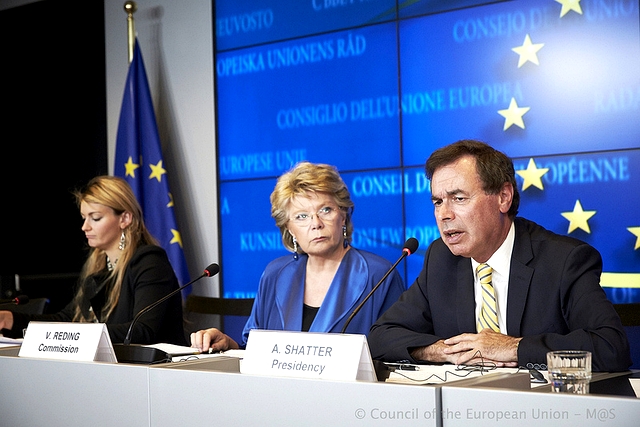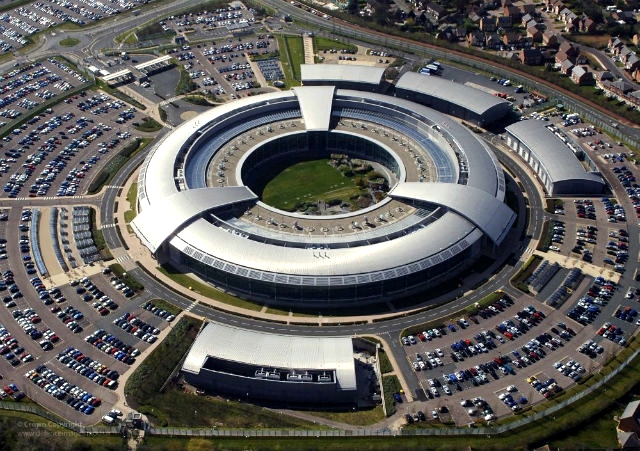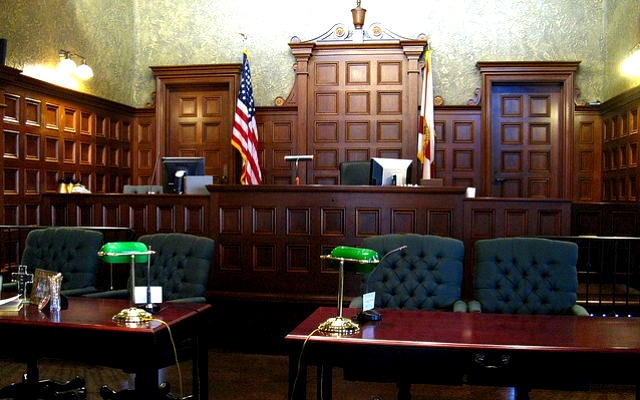
Apple opens the door to Bitcoin and other virtual currencies
Yosemite! Woo! iOS 8! Yay! New way of programming! Huzzah! These were the obvious highlights of Apple's WWDC keynote yesterday, but as the dust settles there are some additional interesting tidbits emerging. As this was a developer conference, it should come as no surprise that the announcements and revelations have the most immediate impact on developers -- but things will also filter down to users. One change that was not given any fanfare at the WWDC is an alteration to Apple's App Store Review Guidelines which paves the way for virtual currency support.
The guidelines themselves are surprisingly easy to read -- this document is nothing like an EULA! But if you'd like to cut to the chase, jump to 11.17 in the "Purchasing and currencies" section. Here you'll find the advice that "Apps may facilitate transmission of approved virtual currencies provided that they do so in compliance with all state and federal laws for the territories in which the app functions". There is no reason that this possible virtual currency support should not include Bitcoin, although the currency has not been specifically mentioned.

Rejoice! UK legalizes digital media copying
Back at the end of March we reported that ripping your CDs and DVDs for personal use was about to be made legal in the UK.
Well, today's the day. You're now free to make backup copies of your discs and digital media such as MP3s, upload them to a personal cloud service like Amazon Cloud Player, or put material onto a portable player without fear that the authorities are about to come knocking. Welcome to the twenty-first century.

Reset the Net shows a groundswell of opposition to the NSA
Internet heavyweights such as Reddit, Imgur, BoingBoing and the WikiLeaks Party are joining forces to encourage internet users to take control of their privacy. Reset The Net is a campaign that flips the virtual bird at the NSA by inviting people to make use of privacy and encryption tools to keep themselves protected online. Also involved are such names as Greenpeace, Amnesty International and the Electronic Frontier Foundation, and the campaign is gathering momentum as internet citizens find themselves increasingly disillusioned by the post-Snowden world.
We have already seen an upsurge in the use of online encryption, but this has been largely employed by those who are more technically minded. The Reset the Net website asks web users to make a pledge: "On June 5, I will take strong steps to protect my freedom from government mass surveillance. I expect the services I use to do the same". Reset the Net is not an end in itself, but more of an awareness-raising campaign that aims to educate people as much as send a message to the NSA and its ilk.

Pirate Bay founder arrested as Demonoid returns from the dead
The Pirate Bay saga is one that has been running for a number of years now, and the latest chapter sees one of the founders arrested in Sweden. Peter Sunde had been on the run for two years after failing to make an appearance having been sentenced to two years in prison. He had been handed an eight month term for aiding and abetting breach of copyright laws, although those associated with the site have long-maintained that they should not be held responsible for the sharing of copyrighted material as no data was stored on the site.
Sunde had been sought by Interpol and his arrest coincided with the eight-year anniversary of the police raid of Pirate Bay servers. He had been living in hiding in Berlin, but having family in Sweden meant that he often returned to the country. Torrent news website TorrentFreak reports that the arrest was a joint operation between Swedish and Polish law enforcement agencies.

The most popular stories on BetaNews this past week - May 25 -- May 31
No week would be complete without a little Windows news, and this week was no different. A registry hack emerged that should make it possible to receive updates for the no-longer-supported Windows XP right up until 2019. Microsoft later spoiled the fun by pointing out that it could lead to problems as the updates that would be made available as a result of implementing the hack would not be designed for regular desktop versions of Windows XP.
Last week we were wondering why it took eBay quite so long to warn users to update their passwords after a security breach earlier in the year. This week we discovered that it was because the company was under the impression that no user data had been accessed. Apple forgot to renew its SSL certificate, and in another Apple-related security story, a hacker managed to take control of iOS and Mac devices, and hold them ransom. To console itself, the company then splashed the cash on Beats Music -- Joe pondered whether this was just another indication of Apple's lack of innovation.

Google gives in, sets up 'forget me' form following EU ruling
A couple of weeks ago, a European court ruling said that internet users had a "right to be forgotten". Google was at the center of the test case, and the internet giant expressed disappointment at the court's decision that individuals should be able to request that their details be removed from search results. Now a removal request form has been created for those looking to clear their name from search queries.
In order to use the form, individuals are required to provide a "valid form of photo ID". It is then possible to request that information that is "inadequate, irrelevant or no longer relevant, or excessive in relation to the purposes for which they were processed" be removed. Google has already made it clear that it found the court ruling "disappointing", and the company says that submitting a request is no guarantee of having details removed from search results.

Caught as a hacker? Helping the FBI is your get-out-of-jail-free card
LulzSec is an infamous, famous and notorious name in the technology world. The small collective made a name for itself by attacking high-profile websites such as Fox.com and government sites, but all of this was interrupted when founding member Sabu (or Hector Xavier Monsegur to his mother) was arrested three years ago. Originally facing a jail sentence of more than 26 years for his hacking work, Sabu is now a (relatively) free man having earned himself a get-out-of-jail-free card by working with the FBI since his arrest to help identify other hackers.
Although a judge in New York passed a sentence of seven months, Sabu had already spent this length of time incarcerated so all that is left is one year's supervision. The leniency comes thanks to the fact that Monsegur agreed to continue to work undercover in the hacking community, supplying the FBI with information about activities and individuals. Among those he helped authorities to prosecute were Jeremy Hammond -- one of the most-wanted cybercriminals in the sights of the FBI -- who was jailed for leaking emails to WikiLeaks.

The most popular stories on BetaNews this past week: May 18 -- May 24
It should come as no surprise that this week's big news was Microsoft's Surface Pro 3 unveiling. Brian had been looking forward to the NYC event and was at the event to get hands on with the new device. There's certainly a lot to love about Microsoft's third generation tablet, but there is that price to consider. If you like the look of what you see, the device is available for pre-order right now -- and if you're undecided between the Surface and a MacBook Air, Mihaita compared the two. Maybe you're one of those who thinks it’s a niche product.
The Surface Mini failed to make an appearance, but there are still lots of other tablets to choose from -- although they are yet to make much of an impression in higher education, unlike Chromebooks which have found their way into Welsh schools. Will Microsoft's tablet manage to attain the longevity of Apple's iPad? You'd be forgiven for thinking that hell itself had frozen over at the news that work is underway that will make it possible to run Android and iOS apps side by side on the same device.

German gamers get Nazi-free version of Wolfenstein: The New Order
Germany and Nazism have history; one doesn’t have to be much of a history buff to know that. But the aftershocks of Hitler's Germany are still being felt; the country is still rather sensitive, shall we say, about the whole idea of the Nazis. So touchy, in fact, that as part of post-World War Two denazification the display of Nazi symbols (or "use of symbols of unconstitutional organizations") is illegal. This presents an issue for the game Wolfenstein which concerns itself largely with escaping from Nazis, killing Nazis, tracking down Nazis... there are lots of Nazis involved. Ultimately this meant that the popular game series was banned from Germany since it was first conceived back in the early 80s.
The latest installment in the series, Wolfenstein: The New Order, is set in the 1960s after a Second World War won by the Nazis. But this time around the game got a German release -- yesterday in fact. Bethesda's Pete Hines said last month that Germany has "a thing about Nazis", describing the country as "a little touchy" about the subject. So how was the release possible? This is not because the country has relaxed its laws -- the display of Nazi-related material can still result in a three year jail term -- but because the game has been censored.

Google, somehow, gains 100% rating for protecting user data
It may seem as though Google feels the sharp end of many tongues -- be it about problems with Glass, for shaping the content of the internet, or the way it handles advertising. But more often than not, the big G finds itself on the receiving end of criticism for being in bed with the NSA for the way it handles user privacy. In spite of all of the ammunition unleashed in Google's direction, the company has -- incredibly -- been awarded a full six stars out of six by the Electronic Frontier Foundation for protecting user data from government requests.
The EFF's Who Has Your Back? report ranks and rates the performance of some of the biggest names in the world of tech for handling user privacy in the face of government data requests. Finding ourselves in a world now tainted by the activities of the NSA, privacy and accountability have become more important to internet users than ever before. The Electronic Frontier Foundation prides itself on "defending your rights in the digital world", and its annual report looks at the performance and promises of 26 companies who handle your data.

Google already receiving 'right to be forgotten' link removal requests
A ruling by the EU Court of Justice earlier this week has caused considerable controversy, and that's likely to be fueled by the news of the people who have tried to jump on the "right to be forgotten" bandwagon following the judgment.
This whole affair began when a Spanish man noticed that Google search results of his name brought up newspaper articles about the repossession of his house due to debts back in the nineties. He argued that this was old news now, and "irrelevant", and that Google should remove those links from being publicly viewable in its results because they were effectively an infringement of his privacy rights. The EU court agreed.

Denizens of a distrustful dystopia: huge surge in online encryption post-Snowden
The revelations made by Edward Snowden have irreversibly changed the face of the internet. There is now suspicions at every turn, every site and provider is the subject of questioning, and web users are warier than ever before. The use of encryption to hide the content and nature of online activity is nothing new, but it seems that it is very much on the increase. As reported by TorrentFreak, analysis from Sandvine shows that there has been a global increase in the use of encryption.
The figures have been reached by looking at the levels of SSL traffic over the past year, and these show that in North America, during peak hours, encrypted traffic just about doubled. In Europe the increase is even more marked, jumping fourfold so that it now accounts for over six percent of peak time traffic. Europe appears to have a greater interest in encryption than North America, with the latter's SSL traffic accounting for 3.8 percent of peak time traffic.

GCHQ to be sued for infecting smartphones with malware
The first legal battle against the UK's Government Communications Headquarters (GCHQ) has begun, as a suit was brought against the spy agency by privacy pressure groups.
The suit, brought against the GCHQ by UK-based NGO Privacy International, accuses GCHQ of infecting "potentially millions" of computers and smartphones around the world with malicious software, that could be used to do anything from extracting photos and text messages, switching on the phone's microphone or camera, or tracking locations or listening in to calls.

Privacy victory: Google told that people have a 'right to be forgotten' online
If you Google yourself, do you stumble across information you would rather wasn't online? Those naked photos of you cavorting in the garden or a snippet from a drunken rant in an online forum could be sitting there for all to see. The page in question may have gone, but that's not to say that you won’t still appear in Google search results.
Obviously there are situations in which this could be detrimental to your reputation, and it's understandable that you might want something done about it. Following a case presided over by the European Union Court of Justice in Luxembourg, judges have ruled that, in certain circumstances, people may ask a search operator to remove data about them from search results.

Oracle wins $1bn appeal against Google over unauthorised Java use in Android
Oracle has won a significant court battle against Google’s Android OS in relation to unauthorized use of its Java programming language that could mean Google paying $1 billion in damages.
The copyright case was decided by the US Court of Appeals for the Federal Circuit in Washington and stemmed from a 2010 case brought by Oracle that claimed that Google had illegally incorporated elements of Java into Android.
